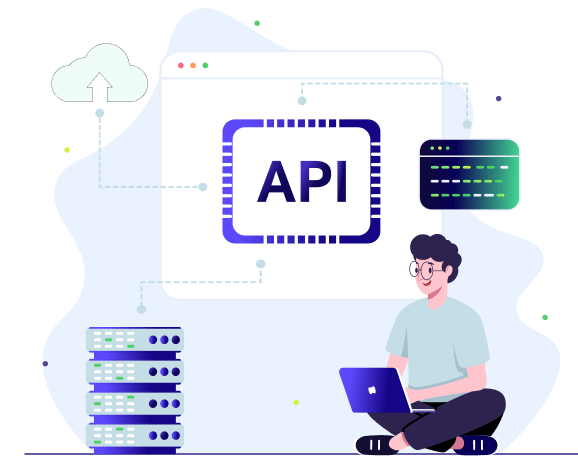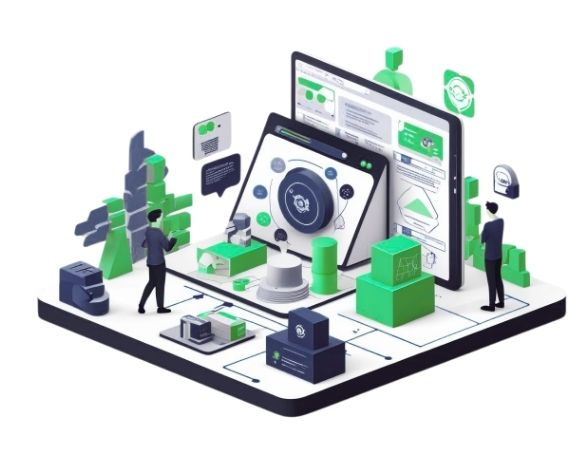Navigating the Challenges in API Testing

APIs (Application Programming Interfaces) are essential for building complex and interconnected systems that power many digital experiences we use daily. To make sure these APIs work smoothly, API testing plays an important role in the overall process.
API testing, while crucial, presents a myriad of challenges that testers encounter throughout the testing lifecycle.
But what are the major challenges faced in API testing? Let’s dissect some major hurdles in API testing and see how automation testing can help overcome them.
Complexity of API Integrations:
One of the foremost challenges in API testing stems from the intricate nature of API integrations. Modern applications often rely on a multitude of APIs, each serving a specific purpose. Each APIs can have its own unique design, protocols, and authentication methods. APIs can use various data formats such as JSON, XML, or Protocol Buffers, as well as protocols like REST, SOAP, or GraphQL. Testing the interactions between these APIs and ensuring seamless integration pose significant challenges for testers.
Adopting a modular approach to testing can help address the complexity of API integrations. Breaking down the testing process into smaller, manageable units allows testers to focus on individual APIs and their interactions.
Read ‘How to Take Testing to Another Level With CI Pipeline Integrations’ to understand what out-of-the-box integrations Qyrus offers.
Dynamic Nature of APIs
APIs are not static entities; they have the ability to evolve with updates and modifications. APIs often have multiple versions, each with its own set of endpoints, parameters, and behaviors.
As they evolve, endpoints may be added, removed, or modified, and parameters may change. Updates to APIs may result in changes to the structure or content of API responses. Modifications to API logic or business rules can affect how clients interact with the API.
Keeping pace with these changes and ensuring backward compatibility while testing can be daunting and time-consuming. Testers need to adapt their testing strategies to accommodate the dynamic nature of APIs.
Implementing version control and continuous testing practices can mitigate the challenges posed by the dynamic nature of APIs. By maintaining multiple versions of APIs and conducting regression testing with each update, testers can ensure compatibility across different API versions.
Additionally, utilizing automated tools for API versioning and dependency management streamlines the testing process and reduces manual effort.
Data Validation Across APIs
Validating data across multiple APIs presents another set of challenges. As data flows between different endpoints, ensuring its accuracy, completeness, and consistency becomes paramount. Crafting comprehensive test cases to validate data integrity adds complexity to the testing process.
APIs may use different data formats such as JSON, XML, or Protocol Buffers to exchange information. APIs often have schemas or data models that define the structure, types, and constraints of the data they exchange. APIs should ensure the integrity of data during transmission to prevent data corruption or loss. APIs should validate incoming data to prevent injection attacks, malformed requests, or unexpected behavior.
Addressing these challenges requires comprehensive testing strategies that cover various aspects of data validation, including schema validation, input validation, boundary testing, and cross-field validation.
Employing data-driven testing techniques and schema validation tools can streamline data validation across APIs. By defining reusable data sets and expected outcomes, testers can automate data validation tests and ensure consistency across API endpoints.
Additionally, leveraging schema validation tools such as JSON Schema or Swagger can verify the structure and format of API responses, enhancing data integrity testing.
You may like: The Impact of Parameterization and Data Driven Testing Methodology
Dependency on External Systems
APIs often rely on external systems and third-party services, introducing dependencies beyond the tester’s control. With external systems, testers have limited control over the behavior of those systems. Fluctuations in the performance or availability of these external dependencies can impact API testing. External systems may produce data that varies over time. Testers must account for such dependencies and devise strategies to handle them effectively.
Implementing mocking and virtualization techniques helps mitigate dependencies on external systems during API testing. By creating mock APIs or virtual services that simulate the behavior of external dependencies, testers can isolate components for testing and eliminate reliance on external systems.
Additionally, incorporating service virtualization tools such as Qyrus’ into the testing infrastructure enables testers to emulate various scenarios and network conditions, enhancing the robustness of API tests.
Know here how to ‘Make Test Building Easier With Manual and Dynamic Service Virtualization’
Maintaining Test Coverage
Crafting comprehensive API test cases to cover various scenarios and edge cases poses a significant challenge. Testers need to strike a balance between achieving adequate test coverage and optimizing testing efforts. Maintaining a robust test suite that captures the breadth of API functionalities requires meticulous planning and execution.
Prioritizing test case coverage based on risk assessment and business impact helps optimize testing efforts and focus on critical functionalities. Employing exploratory testing techniques and boundary analysis can uncover hidden defects and edge cases that may be overlooked in traditional test scenarios.
Additionally, leveraging low-code software testing tools that generate codeless assertions across various components ensures comprehensive test coverage across APIs.
Watch this 1-min video to see how you can build API tests in half the time.
While there are many more challenges in API testing, software testing platforms such as Qyrus offer a comprehensive solution to overcome API testing challenges.
As per Industry ARC, “The recent advancements in technology such as artificial intelligence and machine learning process are further creating opportunities for API testing processes.”
Qyrus’ AI-enabled testing platform is designed to streamline the API testing process and ensure the reliability and performance of APIs. With its new intuitive UI, testing is not only easy to use but also faster now!
Qyrus’ newly launched ‘QAPi’ platform is designed to streamline the API testing process and ensure reliability and performance of APIs. With its new intuitive UI, testing is not only easy to use but also faster now!
Sign up for the Freemium version now.





